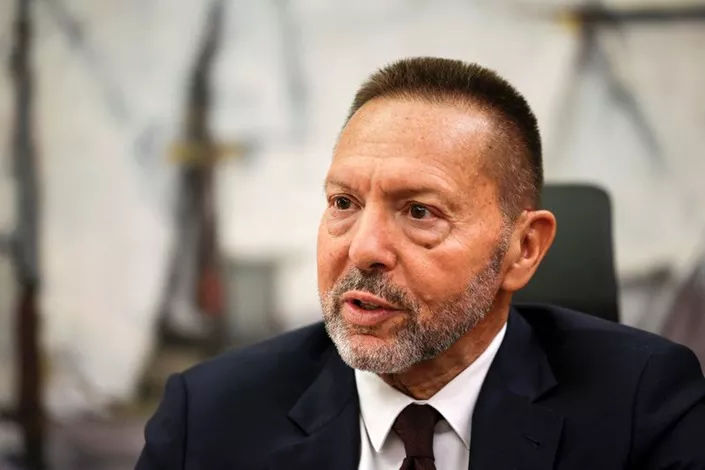President Donald Trump’s tariff policies might reduce economic growth in the eurozone by as much as 1%, according to Greek Central Bank Governor Yannis Stournaras. His comments, made in an interview with the Financial Times published on Monday, come as the European Union prepares to approve countermeasures on U.S. imports worth up to $28 billion.
The EU is facing new U.S. tariffs of 25% on steel, aluminum, and cars, as well as 20% “reciprocal” tariffs on nearly all other goods, effective Wednesday.
Stournaras expressed concerns that a global trade war could trigger a “negative demand shock” in the eurozone, severely affecting growth. He warned that this could lead to weaker economic activity than anticipated, pushing inflation below the European Central Bank’s targets.
The European Central Bank (ECB) has estimated that U.S. tariffs on European imports could reduce eurozone growth by 0.3 percentage points in the first year. EU counter-tariffs could raise this impact to half a percentage point.
Stournaras described the tariffs as deflationary and criticized the U.S. measures as “worse than expected,” highlighting the unprecedented uncertainty they bring to global policy.
The ECB’s next rate decision is set for April 17. Recent data shows eurozone inflation eased to 2.2% in March, down from 2.3% in February, strengthening the case for another interest rate cut later this month.
In 2024, U.S. imports from the EU amounted to 334 billion euros ($365.6 billion), compared to 532 billion euros in EU exports to the U.S.
On April 2, Trump introduced a 10% baseline tariff on all imports to the U.S., along with higher duties on numerous countries, affecting about 60 nations.
Related Topics:


